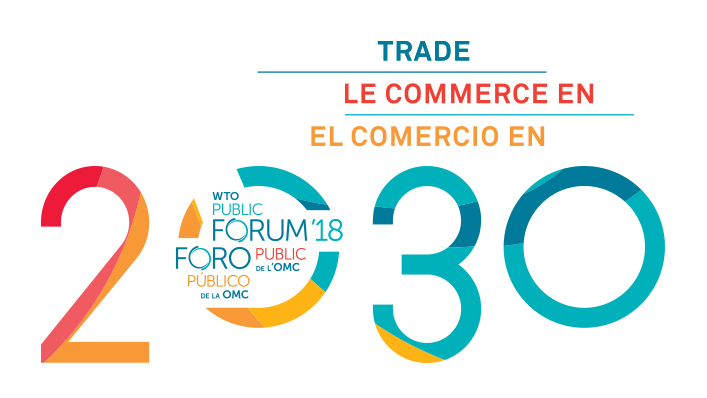Africa goes digital: Leaving no one behind
3 Oct 2018 02:00h
Event report
The session was moderated by Ms Nadira Bayat (Programme Director, Global Economic Governace (GEG) Africa), who started by stating that digital trade is growing very fast, expanding businesses, and empowering women. However, this growth has a lower impact for women, as they are not fully benefiting from the Internet. She stated the need to examine the approach of the African Continental Free Trade Area (AfCTA) in balancing human rights values and digital trade. Bayat underlined that human rights principles are very important in addressing issues related to information and communication technologies (ICTs), and the access to ICTs by women and youth.
Ms Peggy Hicks (Director, Thematic Engagement, Special Procedures and Right to Development Division, Office of the High Commissioner for Human Rights (OHCHR)) started her presentation by asking: What is the link between human rights and digital trade? She explained that the relationship between technology and trade is essential for the development of countries. There are many opportunities in digital trade, however, one of the big tensions is the lack of regulation in digital trade. According to Hicks, governments are not fully prepared to take on the new challenges of digital trade, while allowing small and medium-sized enterprises (SMEs) to do global business. She said that Africa needs to look at the models of best practices of developed countries, and to try to do better in moving towards effective regulation of digital trade. Hicks said that as a society, we need to invest in technology, and that 25% of African countries are working on increasing Internet access to tackle the digital divide. She emphasised the importance of technological investments, and access to jobs through digital materials. In addition, she gave the example of mobile payment system M-pesa in Kenya, that empowers women to do business.
Mr David Luke (Director and Coordinator of the African Trade Policy Centre at the Economic Commission for Africa) highlighted the work of the African group in the World Trade Organization (WTO). He said that the African Union (AU) is cautious about the work done in the e-commerce programme.
He talked about the conference on digital economy, organised in July 2018, in Nairobi, Kenya. He gave national examples on supporting digital trade in countries such as the Ivory Coast, Senegal, Rwanda, and South Africa. These countries are developing competitiveness of technical skills in digital trade. He pointed to Rwanda as a good example in helping and engaging youth in hub technology in order to tackle the digital divide.
Luke also said that there is no consensus on e-commerce policy issues between the member states of the AU. He pointed to the role of AfCTA, signed last March in Kigali, Rwanda, to help the continent deal with digital trade issues. He said that the agreement will cover goods, services, payment issues, and more. According to Luke, the gender divide needs to be examined carefully in order to develop ICT competences of women. He mentioned the lack of data regarding trade-related issues that women in business face.
Ms Ololade Shyllon (Human rights lawyer, and Head of Democracy, Transparency and Digital Rights Unit at the Centre for Human Rights, University of Pretoria, South Africa) clarified the legal issues related to digital trade. She talked about hard laws and soft laws, and explained that African countries adopted an agreement on data protection in 2014. However, according to her, many of the countries are not ready to ratify the agreement due to challenges in privacy, data protection, and data localisation, among others.
Shyllon highlighted the Protocol to the African Charter on Human and People’s Rights on the Rights of Women in Africa (Maputo Protocol). She mentioned that digital trade brings many opportunities, but that we also need to pay attention to the lack of digital skills in Africa. According to her, African countries are faced with challenges related to digital literacy, and language barriers while using the Internet.
The moderator concluded the session with remarks on the huge role of human rights in empowering women in the digital trade. She said that technology and human rights are not separate topics.
Related topics
Related event

